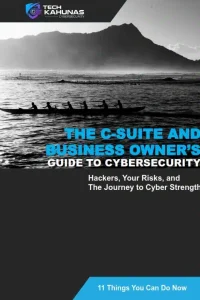To find the perfect IT support company, start by aligning their services with your business's efficiency and security needs. Consider the scale of your operations and any industry-specific requirements, especially regarding data sensitivity and cloud reliance. Decide between managed IT services for ongoing support or on-demand options for flexibility. Evaluate potential partners based on their technical expertise, proactive problem-solving, and customer testimonials. Budget considerations include understanding pricing models, contract terms, and potential hidden fees. Emphasize excellent customer service and strong security compliance to guarantee peace of mind. There's a wealth of insights waiting to guide your decision-making process.
Key Takeaways
- Evaluate IT support needs based on business efficiency, security, and scalability requirements.
- Assess technical expertise, industry experience, and problem-solving capabilities of potential IT support providers.
- Consider managed, on-demand, and cloud-based support services for tailored IT solutions.
- Compare pricing models and contracts for cost predictability and flexibility.
- Prioritize exceptional customer service and communication for a reliable IT support partnership.
Understanding IT Support Needs
Understanding your IT support needs is vital for the efficiency and security of your business operations. You can't afford to overlook the specifics of what your company requires because a mismatch in services could lead to costly downtime or security breaches.
Begin by evaluating your current IT infrastructure. Identify the systems that are already in place and how they align with your operational goals. Take note of any recurring technical issues or gaps that might be hindering productivity.
Next, consider the nature of your business. Are you in a field that handles sensitive data requiring heightened security measures? If so, you'll need IT support that specializes in cybersecurity.
If your operations are heavily reliant on cloud-based services, guarantee your IT support can provide robust cloud management and support.
Don't forget to factor in the size of your business. A startup might need different resources compared to a well-established company.
Depending on your growth trajectory, scalability is essential. You want an IT partner who can grow with you.
Types of IT Support Services
When you're choosing IT support services, it's important to know the different types available to you.
Managed IT services can provide ongoing maintenance and monitoring, while on-demand support solutions offer help as issues arise.
Additionally, cloud-based assistance options allow you to access support remotely, ensuring flexibility and scalability for your business.
Managed IT Services
Managed IT services transform the way businesses handle their technology needs, offering a thorough approach to IT support. By partnering with a managed service provider (MSP), you can offload daily IT tasks, allowing your team to focus on core business activities. These services typically include network management, data backup, cybersecurity, and cloud solutions, guaranteeing your IT infrastructure runs smoothly and securely.
With managed IT services, you gain access to a team of experts who proactively monitor and maintain your systems. They identify potential issues before they escalate, reducing downtime and enhancing productivity. This proactive approach helps prevent costly disruptions and data breaches, offering peace of mind knowing your technology is in capable hands.
Additionally, managed IT services can be tailored to fit your business's unique needs. MSPs offer scalable solutions that grow with your company, providing flexibility as your requirements change. By choosing a managed service model, you benefit from predictable monthly costs, making budgeting easier and more efficient.
Ultimately, managed IT services allow you to leverage advanced technology and expert support without the overhead of maintaining an in-house IT department. This strategic partnership guarantees your business remains competitive and future-ready in a rapidly evolving digital landscape.
On-Demand Support Solutions
Why rely solely on internal resources when on-demand support solutions offer a flexible and efficient way to address your IT challenges? These services allow you to tap into expert assistance precisely when you need it, without the overhead of maintaining a full-time IT team.
On-demand support is perfect for businesses that occasionally encounter complex issues requiring specialized skills. When you choose an on-demand solution, you're not tied into long-term contracts. Instead, you can access technical support for troubleshooting, installations, upgrades, and more, whenever the need arises.
This flexibility means you're only paying for what you use, helping you manage costs more effectively. On-demand support services typically provide rapid response times, guaranteeing minimal disruption to your operations.
Imagine encountering a network issue that could halt productivity—having access to immediate expert help can prevent significant downtime. With professionals just a call or click away, you can resolve problems efficiently and keep your business running smoothly.
Moreover, these solutions offer access to a wide range of expertise. Whether it's cybersecurity threats, software glitches, or hardware failures, on-demand support connects you with specialists who can tackle specific problems quickly and effectively.
This targeted approach guarantees your IT infrastructure remains robust and reliable.
Cloud-Based Assistance Options
Cloud-based assistance options offer a modern and scalable approach to IT support services, transforming how businesses manage their technological needs. By leveraging cloud technology, you can access a wide range of services without the need for extensive on-premises infrastructure. This means you can scale your resources up or down based on demand, ensuring efficiency and cost-effectiveness.
With cloud-based support, you gain flexibility and mobility. Your team can access essential tools and data from anywhere with an internet connection. This accessibility fosters collaboration and boosts productivity, especially for remote or hybrid work environments.
Additionally, cloud services often come with robust security measures, protecting your data and applications from potential threats.
You'll find that cloud providers offer various support levels, from basic monitoring to all-encompassing managed services. They handle everything from software updates to data backups, freeing up your internal resources to focus on core business activities.
Whether you need help with cloud migration, integration, or ongoing maintenance, these services can be tailored to fit your specific needs.
Ultimately, embracing cloud-based assistance means staying agile and responsive in a fast-paced digital world, ensuring your business remains competitive and innovative.
Evaluating IT Support Experience
Evaluating an IT support company's experience is essential in ensuring you receive high-quality service for your business needs.
When appraising their experience, you want to be confident they can handle your specific challenges and requirements. Here's how you can gauge their expertise effectively:
1. Industry-Specific Experience: Check if they've worked with companies in your industry. This experience means they're familiar with the unique demands and technology your business might use.
You'll benefit from their specialized knowledge and quicker problem-solving skills.
2. Years in Business: While years in business don't guarantee quality, a company with a long track record likely has refined processes and resilience.
They've seen trends come and go, which provides valuable insights into maintaining and evolving your IT systems.
3. Client Testimonials and Case Studies: Look for testimonials or case studies that highlight their successes.
Real-world examples of how they've tackled similar problems can give you confidence in their ability to meet your needs.
Assessing Technical Expertise
Now that you've considered the experience of an IT support company, it's equally important to evaluate their technical expertise. You want to make sure they've the skills to handle your specific needs. Start by checking if their team holds relevant certifications, like Microsoft Certified Professional or CompTIA A+. These credentials indicate they've met industry standards and have up-to-date knowledge.
Next, evaluate their experience with specific technologies you use. Ask if they've worked with your software, hardware, or systems before. A company familiar with your tech stack will troubleshoot issues more efficiently.
It's also wise to inquire about their problem-solving approach. Do they offer proactive solutions, or do they only react when something breaks? A proactive team can foresee potential problems and minimize downtime.
Consider their support for emerging technologies too. As technology evolves, you'll want a partner who can adapt and integrate new tools seamlessly.
Don't hesitate to ask for case studies or client references to verify their technical competence. By thoroughly evaluating their technical expertise, you're ensuring you align with an IT support company that not only meets but exceeds your expectations.
Pricing Models and Contracts
When choosing an IT support company, you'll need to compare fixed and variable cost models to see which aligns best with your budget.
Pay attention to the length of the contract, as a longer commitment might offer better rates but reduce your flexibility.
Be on the lookout for hidden fees that can inflate your costs unexpectedly.
Fixed vs. Variable Costs
In the domain of IT support companies, understanding the distinction between fixed and variable costs is essential when choosing a pricing model and contract. Fixed costs remain constant, regardless of how much service you use. They offer predictability, making them appealing if you want stable budgeting.
Variable costs fluctuate based on usage, providing flexibility but potentially leading to unpredictability in expenses. When evaluating pricing models, keep these key points in mind:
- Budget Stability: If you're seeking predictable expenses, a fixed cost model is your best bet. You'll know exactly what you're paying each month, which can help in planning and budgeting.
- Scalability: With variable costs, you pay for what you use. This model is ideal if your IT support needs fluctuate or if you're expecting growth. You'll avoid overpaying when usage is low.
- Cost Efficiency: Analyze your company's usage patterns. If you consistently utilize more services, fixed costs might be more economical. Conversely, if your needs are sporadic, sticking to variable costs could save you money.
Contract Length Considerations
Contract length plays an essential role in the pricing models and contracts of IT support companies. When considering which IT support company to partner with, it's vital to evaluate how long you're willing to commit.
Shorter contracts often offer more flexibility, allowing you to adapt quickly to changing needs or to switch providers if you're unsatisfied. However, they might come with a higher monthly price due to the increased risk for the provider.
Longer contracts typically offer cost savings, with companies willing to provide discounted rates for your commitment. This can be an attractive option if you're confident in the provider's ability to meet your needs consistently over time.
But remember, a longer contract means less flexibility. If your business's needs change or you encounter service issues, you may find yourself locked into a less-than-ideal arrangement.
Before deciding, assess your business's current and future IT needs. Consider factors such as business growth, technology advancements, and budget constraints.
Discuss these with potential providers, and make sure they offer terms that align with your strategic goals. Ultimately, the right contract length should balance cost savings with the ability to adapt as your business evolves.
Hidden Fees Alert
As you initiate IT support contracts, watch out for hidden fees that might inflate your costs unexpectedly. These fees often lurk in the fine print and can turn what seemed like an affordable solution into a budget nightmare. Understanding where these hidden fees might appear is essential to managing your IT support budget effectively.
- Setup and Onboarding Fees: Some companies charge a hefty initial fee to get your systems up and running. They may not be included in the advertised price, so always ask about these potential costs upfront.
- Overage Charges: If your contract includes a cap on services or support hours, be aware of what happens if you exceed them. Overage charges can accumulate quickly and surprise you at the end of the month.
- Termination Fees: If you decide to switch providers or terminate your contract early, you might be subject to early termination fees. These can be substantial, so review the terms carefully before committing.
Customer Service Excellence
Exceptional customer service stands as the cornerstone of any successful IT support company. When you're choosing a provider, look for those who prioritize your needs and respond quickly to your issues. You want a team that listens and communicates clearly, ensuring they understand your challenges before jumping to solutions. This proactive approach not only resolves current problems but also prevents future ones.
An excellent IT support company offers multiple channels for you to reach them—be it phone, email, or chat. They should provide prompt and effective assistance, keeping you informed every step of the way. You don't want to be left in the dark about the status of your requests.
Personalization is another trait of outstanding customer service. They should remember your past issues and preferences, which helps them tailor solutions to fit your business needs. This personal touch makes you feel valued and understood.
Lastly, check for client testimonials and reviews. Positive feedback from other customers can give you insights into the company's service quality. A company with a strong reputation for customer service excellence is more likely to meet your expectations and help your business thrive.
Security and Compliance Standards
While customer service excellence is key, guaranteeing robust security and compliance standards is equally important when selecting an IT support company.
You need a partner that prioritizes protecting your sensitive data and adheres to industry regulations. A lapse in security or compliance can lead to significant risks, including data breaches and hefty fines.
To guarantee the IT support company you choose is up to the task, look for these three critical elements:
- Certifications and Standards: Verify that the company holds relevant certifications like ISO 27001 or SOC 2. These indicate a commitment to security best practices and compliance with industry standards.
- Data Protection Measures: Guarantee they employ encryption, regular security audits, and have protocols for incident response. This safeguards your data from unauthorized access and potential breaches.
- Compliance Expertise: The company should be well-versed in regulations affecting your industry, such as GDPR, HIPAA, or PCI-DSS. Their knowledge will help you navigate complex compliance landscapes and avoid legal pitfalls.
Long-Term Partnership Potential
Longevity defines true value in a business relationship, especially when it comes to selecting an IT support company. You're not just looking for a quick fix to your current tech issues; you're seeking a partner who'll adapt and grow with your business.
Consider how the company approaches evolving technologies and whether they've a track record of innovation. Their ability to foresee industry trends and adapt accordingly can be a game-changer for your business.
When evaluating potential partners, pay attention to their client retention rates. A high retention rate often indicates satisfied customers and reliable service. You should also ask for references from long-term clients to gain insights into their experiences.
This step can reveal how well the IT company handles ongoing support and the quality of their customer relationships.
Communication is essential in a long-term partnership. Make certain they're responsive and prioritize clear, open dialogue. Regular updates and consistent check-ins should be part of their service package.
Frequently Asked Questions
How Do IT Support Companies Stay Updated With the Latest Technology Trends?
You guarantee IT support companies stay updated by attending industry conferences, participating in webinars, and subscribing to tech publications. They actively engage with professional networks and invest in continuous training to keep pace with evolving technology trends.
What Are the Common Red Flags When Selecting an IT Support Company?
When selecting an IT support company, watch for red flags like a ship lost at sea: vague communication, inconsistent service, lack of transparency, or outdated methods. Trust your instincts and choose a company that aligns with your needs.
How Can IT Support Companies Assist During a Company Merger?
During a merger, IT support companies guarantee smooth integration by aligning systems, managing data migration, and minimizing downtime. They handle security concerns, streamline communication, and provide ongoing support to keep everything running seamlessly. You'll appreciate their expertise.
What Role Do IT Support Companies Play in Disaster Recovery Planning?
IT support companies are your disaster recovery superheroes. They help you craft a foolproof plan, ensuring rapid data recovery and system restoration. You'll have peace of mind knowing they're ready to save the day when chaos strikes!
How Do Cultural Differences Impact Collaboration With International IT Support Companies?
Cultural differences can impact your collaboration with international IT support companies by affecting communication styles, work ethics, and problem-solving approaches. Embrace diversity, foster open dialogue, and adapt strategies to guarantee successful partnerships and effective collaboration.
Conclusion
Finding the right IT support company is like finding the perfect dance partner; it requires harmony, understanding, and trust. As you navigate your options, focus on aligning your needs with their services, technical expertise, and pricing models. Prioritize excellent customer service and guarantee they meet security and compliance standards. By choosing wisely, you'll forge a long-term partnership that keeps your business running smoothly and efficiently, just like a well-choreographed dance routine.



 Get your CPA firm aquainted with new FTC rules.
Get your CPA firm aquainted with new FTC rules. 




